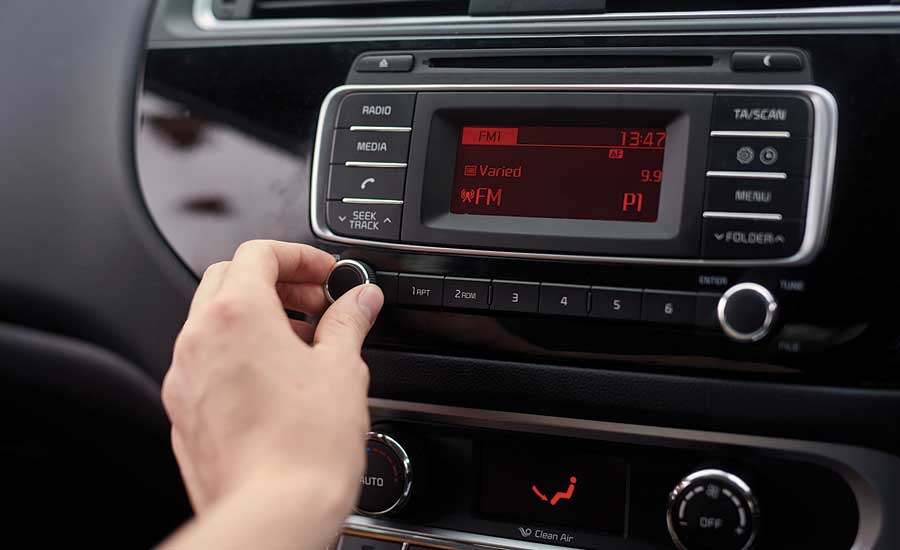How to fully utilize radio and TV marketing

Does radio and television marketing still work in this digital world?
Yes, it does.
This isn’t just my opinion. It’s an observation based on the work I’ve done with clients and partners recently as well as over many years.
Here’s what I do know about radio and TV marketing: It doesn’t work unless you plan and execute the campaigns way ahead of time. So, when planning radio or TV campaigns, there are four key things you must do to be successful.
1. Know your audience. Select the radio and TV stations that reach your desired target audience based on measured proof from these stations that your audience is really engaging with them.
If you have multiple target audiences, one radio campaign doesn’t fit all. You’ll need to change the message and radio station to reach that specific target audience. The old marketing adage my marketing guru Leo taught me is, “Say something to someone or risk saying nothing to everyone.”
2. Create a commercial that stands out. That may mean using a catchy jingle. This is especially so on the radio, but it applies to TV, too.
You can’t push a shopping cart down your supermarket aisle without being bombarded by marketing. It’s right there on the cart itself. We’ve all grown numb to it. So, if you want to be safe, you will be — but your message is likely to go unheard.
One more thing: Jingles work. How many times do you find yourself hearing a jingle in your head when you least expect it? It’s like sticky paper — it catches things.
3. Be consistent and persistent. Find stations that will provide a “three” frequency for the right audience. That means that in any given week, your audience would see or hear your ads a minimum of three times, so your message or jingle can more easily get stuck in their heads.
You can have the cleverest commercial out there, but it’s worthless unless potential clients hear or see it. Also, just because I heard it doesn’t mean it bought any of my mental real estate — only heavy repetition over time can do that.
4. Include text in your ad. For TV, use a banner at the bottom of the TV screen that has your vital information on it so if people DVR the program and fast forward through the commercials, your information will still be seen.
I’m telling you this because contractors have been squandering their marketing budgets by not doing this simple step. Also, know that this is why the contractors who are best at marketing will pay up for live TV like the news and sporting events because they have your attention and there is no way to fast forward through their commercials.
Want more on this?
If you don’t start planning and executing that plan using a marketing calendar — way before you want the phone to ring — you’ll just have wasted a whole lot of marketing dollars.
In fact, of all the mistakes I’ve seen contractors make with radio and TV marketing, the biggest is misjudging the amount of time it takes to get everything lined up. You have to be proactive. You have to research the right radio and TV stations. You need to come up with what it is you’re going to be marketing that sets you apart from the crowd noise your competitors put out there. The most effective campaigns I’ve been around have all used the power of testimonials from happy customers.
Then, you need to get enough ears and/or eyeballs to react to what you’re saying. This all takes time.
To be clear, I’m a fan of search engine optimization, search engine marketing (which is like pay-per-click) and social media marketing — they all work when executed properly. They take an investment of time, energy and money to work, and they can be very effective. But, it can take a while to break through — if you do at all — at making calls from the right amount of perfect customers, who are the right customers calling you at the right time.
Another thing I’ve seen go wrong is when contractors pull the plug on their radio or TV marketing campaign too soon. It takes time to get the message out there.
Another Leo tip was: “When you’re getting sick of hearing the ad, they’re just beginning to hear it. So, don’t make yourself a moving target by changing the ad you’re airing too soon or quit running the campaign too soon.” I’ve learned that you need to be committed to a minimum of a six-month run before you can really judge if radio or TV marketing is working for you.
What I know based on results is that radio and TV marketing can be as effective if not more so than just digital marketing in today’s world. So if you want to have your phone ringing in the months ahead, break out your marketing calendar today and put the time, energy and money into radio and TV marketing.
Looking for a reprint of this article?
From high-res PDFs to custom plaques, order your copy today!








